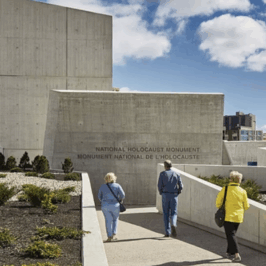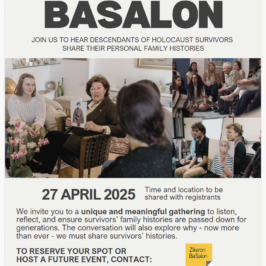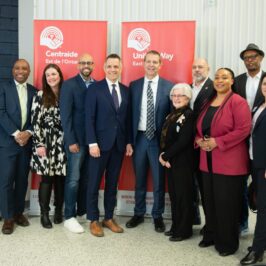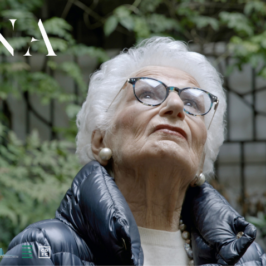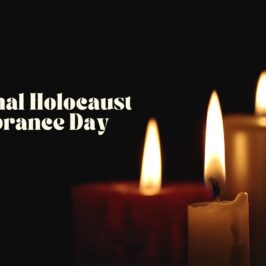Date: Thursday, November 29, 2018
Time: 4:00 – 6:00 PM
Location: Siskind Room 503, MacOdrum Library, Carlton University
Cost: Free
Speaker: Dr. Helmut Walser Smith, Martha Rivers Professor of History at Vanderbilt University
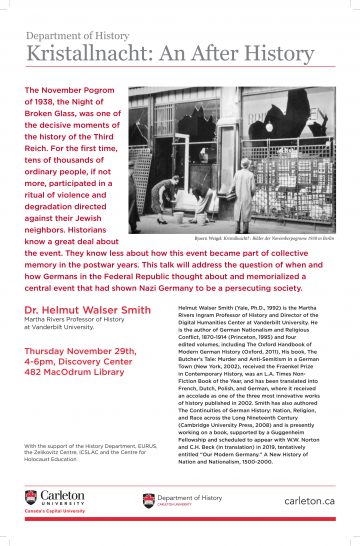
The November Pogrom of 1938, the Night of Broken Glass, was one of the decisive moments of the history of the Third Reich. For the first time, tens of thousands of ordinary people, if not more, participated in a ritual of violence and degradation directed against their Jewish neighbors. In more than a thousand communities, synagogues were burned down, destroyed, and desecrated. Historians know a great deal about the event. They know less about how this event became part of collective memory in the postwar years. Using method from digital humanities, this talk will address the question of when and how Germans in the Federal Republic thought about and memorialized a central event that had shown Nazi Germany to be a persecuting society.
Helmut Walser Smith (Yale, Ph.D., 1992) is the Martha Rivers Ingram Professor of History and Director of the Digital Humanities Center at VanderbiltUniversity. He is the author of German Nationalism and Religious Conflict, 1870-1914 (Princeton, 1995) and four edited volumes, including The Oxford Handbook of Modern German History(Oxford, 2011), His book, The Butcher’s Tale: Murder and Anti-Semitism in a German Town (New York, 2002), received the Fraenkel Prize in Contemporary History, was an L.A. Times Non-Fiction Book of the Year, and has been translated into French, Dutch, Polish, and German, where it received an accolade as one of the three most innovative works of history published in 2002. Smith has also authored The Continuities of German History: Nation, Religion, and Race across the Long Nineteenth Century (Cambridge University Press, 2008) and is presently working on a book, supported by a Guggenheim Fellowship and scheduled to appear with W.W. Norton and C.H. Beck (in translation) in 2019, tentatively entitled “Our Modern Germany.” A New History of Nation and Nationalism, 1500-2000.
Presented with the support of the History Department, EURUS, the Zelikovitz Centre and the Centre for Holocaust Education and Scholarship (CHES).

